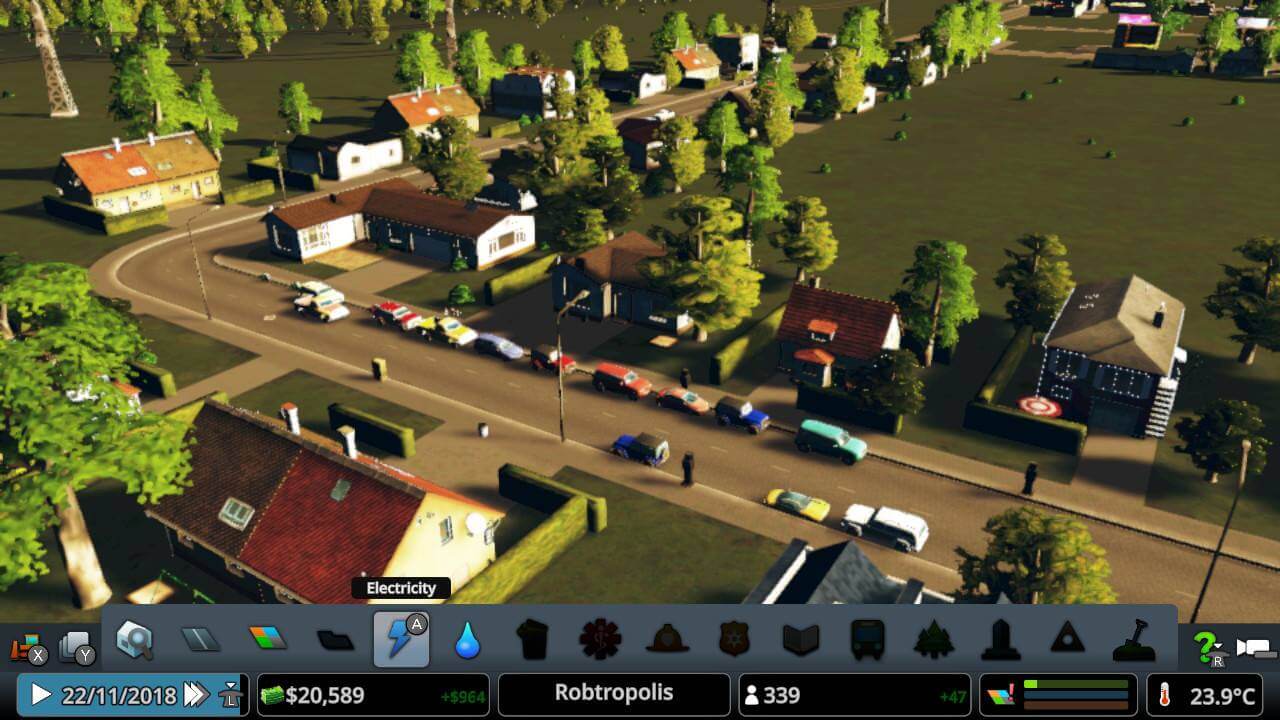


It's often soothing, like when flying the free camera around or peering down at the tiny NPCs living in your creation.

This gets repetitive pretty quickly, but a menu option thankfully prevents these messages from automatically popping up.Īt times, Skylines is intensely satisfying, such as when solving a troublesome traffic snarl or when all the buildings in a district begin leveling up because you've provided the right combination of services and amenities. Citizens can also communicate with you via "Chirper," a Twitter-like feed at the top of the screen. Icons appear above buildings to signal problems, like businesses with a dearth of customers or homes with sewage problems. You can view your city through several filters: pollution (including noise), crime, property values, wind speed (for turbine power), water and electricity availability, and even see how many people are using public transportation. Skylines' UI is pretty slick and easy to understand. You can also create industrial districts to focus on oil and ore mining, logging, farming, or general industry. You can tax your districts differently, and even ban industrial traffic in congested areas (just make sure to provide heavy trucks an alternate route). Districts are a great feature, allowing you to tinker with policies and regulations like recycling, free public transportation, and legal drug use, without having to unleash them citywide. You can also use a brush tool to divide your city into districts. Add nearby services like police stations and schools, and amenities like parks and plazas to allow buildings to level up. Once you've got some roads built and have assigned them as residential, commercial, and industrial, basic buildings will begin appearing. If you're more interested in building unbroken tree-lined avenues and long, winding roads than logical grids, you certainly can, but be prepared for your city to lose a good deal of functionality. Figuring out the best way to build roads and intersections takes time, experimentation, and close scrutiny, something I think many players will really enjoy. Garbage collection, unattended building fires, and dead body removal were recurring problems in all my cities, and it's because they all involve vehicles (hearses, in the last instance) needing to get to specific locations quickly, which is as much a function of easy access as of smooth traffic. It's not just traffic congestion you need to worry about, it's logical traffic routes. It's more difficult to lay down roads that make sense. It's not unexpected that Skylines' biggest challenges involve roads and traffic, as it comes from Colossal Order and Paradox Interactive, the same developer/publisher duo as Cities in Motion, a game based around transportation management (Cities: Skylines is not related to the Cities XL series).


 0 kommentar(er)
0 kommentar(er)
